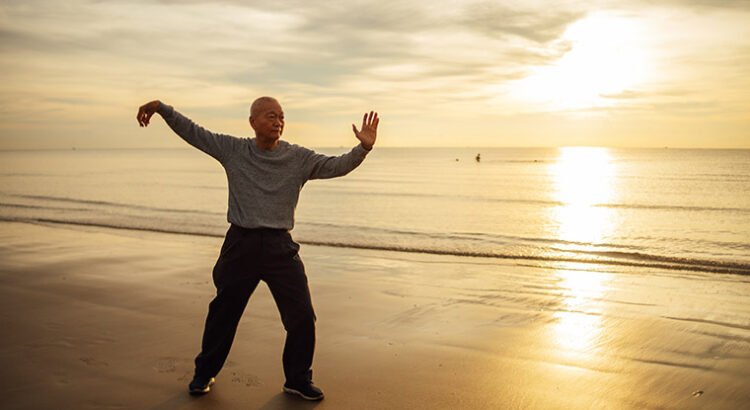The Chinese martial art practice, Tai Chi, may ease symptoms and slow down progression of Parkinson’s disease, according to a Chinese study published in the Journal of Neurology, Neurosurgery and Psychiatry. It was also associated with lower doses of required drugs over time.
Parkinson’s disease is the fastest growing neurological condition in the world, affecting over 10 million people worldwide. There is no cure for the disease. Certain therapies can improve symptoms, but none has shown to delay disease progression. Previous research has shown that Tai Chi can relieve motor and non-motor symptoms of Parkinson’s symptoms in the short term.
To find out its long-term efficacy, researchers followed 334 patients with Parkinson’s disease for an average of 4.3 years. Of them, 147 practised Tai Chi twice a week for an hour, while the remaining 187 patients continued just with their standard care. Disease severity, progression and medication usage was assessed at the start and over the study period. The disease progressed more slowly in the Tai Chi group, as assessed by overall symptoms, movement and balance.
Falls, fractures, dizziness, back pain, restless legs syndrome and hallucinations were all lower in the Tai Chi group. Cognitive function deteriorated more slowly in the Tai Chi group, while sleep and quality of life continuously improved. Also, the number of patients who needed to increase their medication doses was significantly higher in the comparison group. “The long-term beneficial effect on [Parkinson’s disease] could prolong the time without disability, leading to a higher quality of life, a lower burden for caregivers and less drug usage,” said the study.




